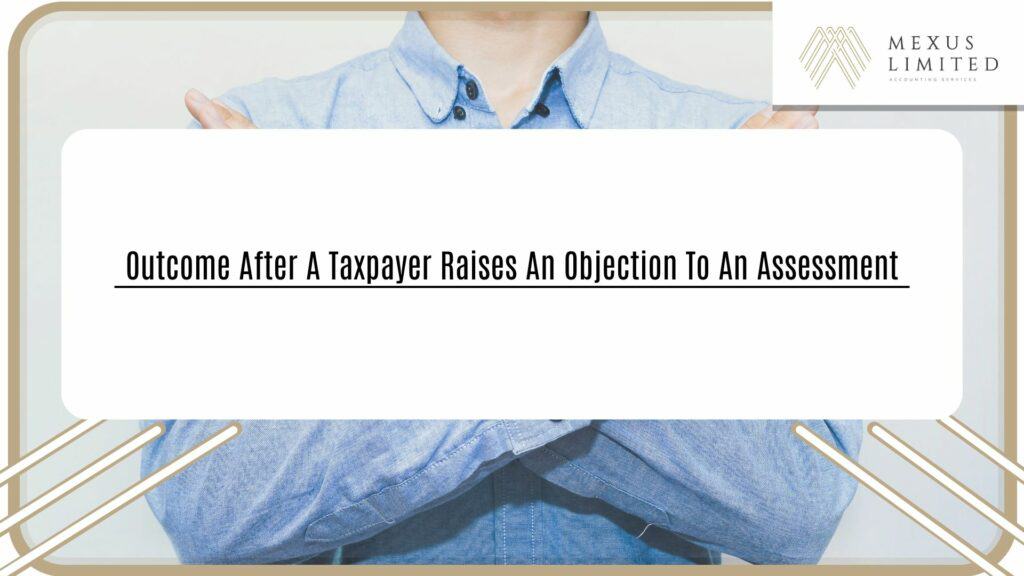Outcome after a taxpayer raises an objection to an assessment

When IRD receives a written objection from a taxpayer, it will issue a letter requesting further information from the taxpayer or other relevant parties if necessary. After examining the information, the IRD has several possibilities to deal with the matter:
Issue a change of assessment based on the taxpayer’s reasons for objection
issue a letter of recommendation to explain to the taxpayer how the assessment should be changed
If a change of assessment is considered necessary, the taxpayer will be asked to formally withdraw the objection with evidence and justification
If the taxpayer does not respond to points 2 or 3 above for a long time, the IRD will internally cancel the case and the taxpayer will be required to pay the tax in full. However, if a taxpayer suddenly requests IRD to follow up on his case, IRD will re-open his case and consider whether to revise the assessment in the light of the latest information or justifications provided by the taxpayer.
If IRD issues a proposal or formally withdraws the objection in writing and the taxpayer still does not accept IRD’s proposal, IRD will refer the case to the Appeals Unit if the parties are unable to reach a settlement and the Appeals Unit will review the case once again. If the taxpayer still does not agree with the Appeals Unit’s proposal, the Appeals Unit will then draft the Commissioner’s ruling, which will be signed by the Commissioner or the Deputy Commissioner.
The Commissioner of Inland Revenue may:
Maintain the original assessment
amend the assessment (including increasing or reducing the original assessment)
cancel the original assessment
If a taxpayer still does not accept the Commissioner’s ruling, within one month of the issuance of the Commissioner’s ruling, the taxpayer may submit a letter of appeal to the Board of Review. The Board of Review is composed of tax professionals and each hearing is chaired by a Senior Counsel. After hearing the arguments and evidence of the taxpayer and the IRD representative, the Appeal Board makes a decision. As the decision of the Board of Review is final, taxpayers are required to present all favourable evidence and arguments to the best of their ability during the hearing.
The above information is for reference only. If you have any questions, we welcome your tax enquiries.
